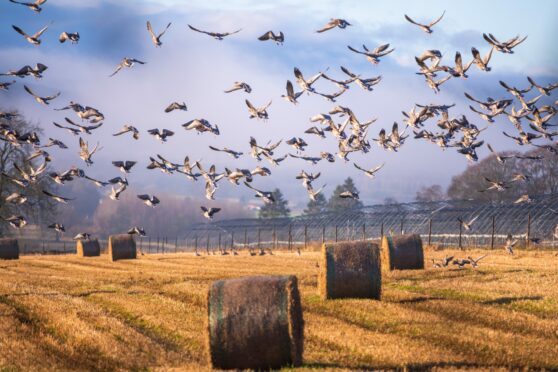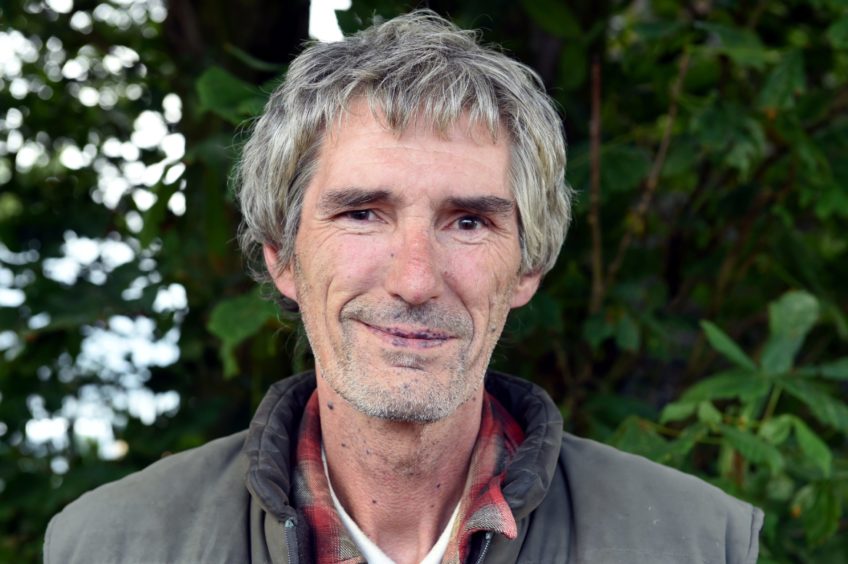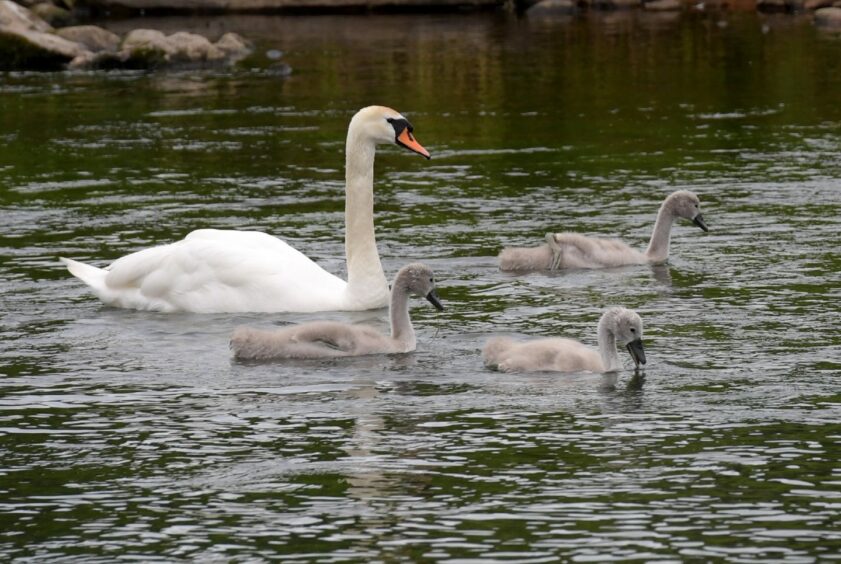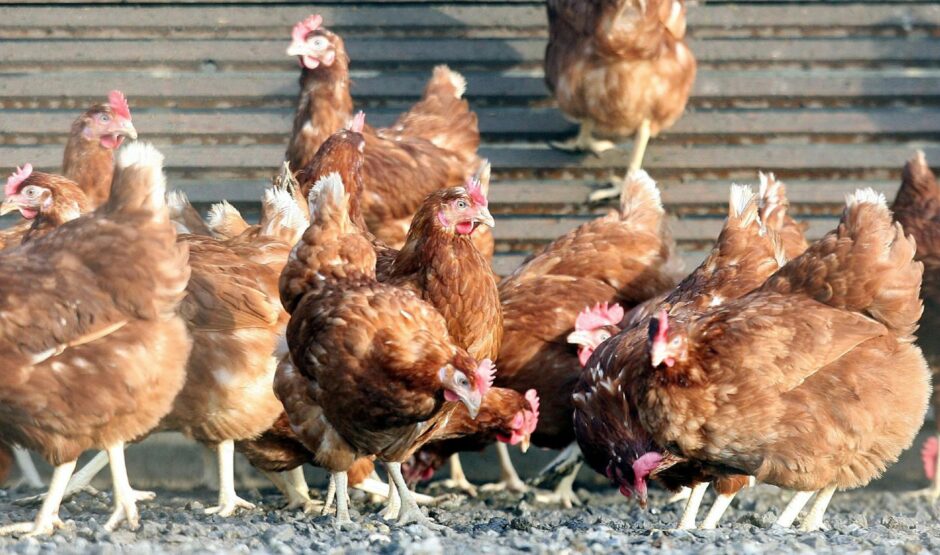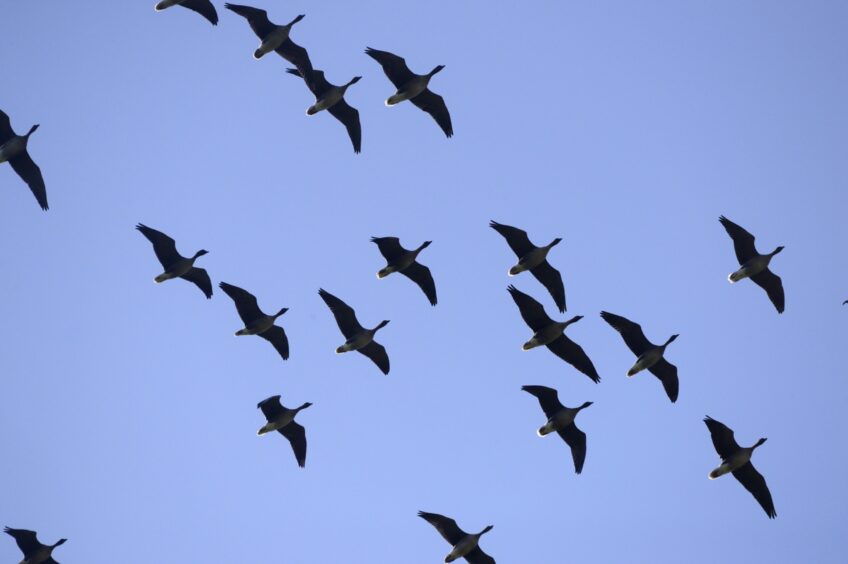A wildlife rescue centre in Aberdeenshire has stopped accepting wild birds over avian influenza fears.
Cases of the disease, more commonly known as bird flu, have been reported across Europe.
The UK Government is investigating a number of cases in the UK, including confirmed infections in birds in Angus, North Yorkshire and Lancashire.
To help limit the potential spread, an Avian Influenza Prevention Zone (AIPZ) has been established across Great Britain since November 3.
All bird keepers in the country are required to follow “strict biosecurity measures” to stop the spread.
‘A very concerning situation’
Keith Marley, who operates the New Arc wildlife rescue centre north of Ellon, has made the “very difficult decision” to stop accepting wild birds for the time being.
It is the first time such a “severe”, although temporary, measure has ever been taken at New Arc, which has not been shut once in its 15 years.
Keith explained that if the centre accepted just one bird and it was discovered to be infected, it could risk the lives of all the other avian residents, both fit and poorly, at the rescue centre.
He said: “It’s a very concerning situation.
“We’ve basically had to close the door to all new birds coming in.
“It’s being found within migratory species, so swans, geese, ducks, that sort of animal.
“But the fact of the matter is there’s a lot more migratory species than people think. Blackbirds migrate, as do lots of thrushes and finches.”
What’s the situation like across the UK and internationally?
A number of outbreaks of bird flu have been reported throughout the UK, Europe, and also in Asia, in both farmed and wild species.
Last week the virus was found to have spread at an animal sanctuary in Essex, which resulted in the death of 10 guinea fowl and 13 chickens in a single day.
And in South Korea, an outbreak has taken place at a farm with around 770,000 poultry, and all the animals were culled.
Outbreaks of the virus have also been reported in Norway at two farms in the south-west of the country.
The UK Government’s risk level for an “incursion” of avian influenza in wild birds in the UK has been increased from “medium” to “high”.
Is there a risk to humans?
Although avian influenza is primarily a disease that affects birds, it does pose a very low risk of transmitting to humans.
The UK Health Security Agency (UKHSA) said that bird flu’s “risk to the general public’s health is very low”.
And the Food Standards Agency (FSA) said on the “basis of the current scientific evidence, avian influenza poses a very low food safety risk for UK consumers”.
The FSA also said that properly cooked poultry and poultry products including eggs are safe to eat.
Bird flu is not connected to Covid-19.
What should I do if I see a sickly or dead bird in the wild?
If you spot a wild bird which looks sick or is dead, do not touch it.
If you come across dead wild waterfowl, such as swans, geese or ducks, or other wild birds like gulls or birds of prey, report it to the Department for Environment, Food and Rural Affairs (Defra) on the national helpline 03459 33 55 77.
Keith from New Arc said the Aberdeenshire rescue centre is still accepting non-bird admissions, and explained the centre will still be able to offer advice on 0796 225 3867 as usual.
He said: “We’ve never had to close for anything before, not even for one day through the worst of the Covid pandemic, so this is a big step for us.
“We’re still open to mammals and other animals coming in, it’s just for birds we’ve had to take this step.”
For more information on bird flu in the UK click here.
